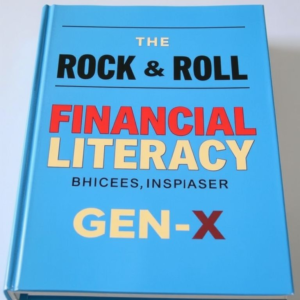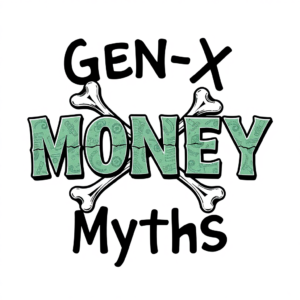How to Know if You are Financially Literate

How to Know If You are Financially Literate
What Does It Really Mean to Be Financially Literate?
Let’s start here: Financial literacy is not about being rich. It is not about having a perfect credit score or knowing how to day-trade stocks. It is about understanding how money works—and how to make it work for you.
If you can make informed financial decisions, avoid common traps, and build toward your goals with confidence, you are already on the path.
If you have ever wondered, “Am I actually good with money?”—this post is your backstage pass to clarity.
Financial Literacy Is a Skill—Not a Personality Trait
You were not born knowing how to budget, invest, or decode your credit report. Most of us were not taught these things in school, either. We learned by trial, error, and sometimes… overdraft fees.
The good news? Financial literacy is learnable. It is a set of habits, mindsets, and tools you can build over time—no shame, no spreadsheets, just strategy.
The Importance of Financial Literacy
Studies prove that those with higher levels of financial literacy are more likely to make ends meet, spend less of their income, create a three-month emergency fund, and open a retirement account than those with lower financial literacy.
Making informed financial decisions is more important than ever. Financial literacy is a must for making thoughtful and informed decisions, avoiding unnecessary levels of debt, helping family members through these complex decisions, and having adequate income in retirement.
Signs You are Financially Literate
Here is a checklist of habits and milestones that signal you are on the right track. You do not need to check every box—but the more you do, the stronger your financial foundation.
- You have your money in a lot of different places.
Diversification is Investing 101. If one of the places you have your money loses value, money in a different place may gain value and balance it out.
- You have (and use!) a budget.
You create a plan for your spending—and you revisit it regularly. Your essentials, your fun money, and your future goals are known also. You know what is coming in, what is going out, and where it is going. Whether it is an app, a spreadsheet, or a notebook— you have eyes on your money.
- You understand debt.
You know the difference between good debt (like a mortgage or student loan) and bad debt (high-interest credit cards). Good debt will increase your income over time, bad debt will not. You have a strategy to pay debt down.
- You have an emergency fund and understand the value of it.
An unexpected expense could immediately derail a meticulously designed financial plan if you had to take money from it to cover said expense.
- You understand the power of compound interest and long-term investing.
You earn interest on interest.
- You make financial decisions based on goals—Not Guilt.
You spend intentionally, do not beat yourself up over every latte or concert ticket, know your values, and your money reflects them. Studies show that people are more successful when they establish financial goals.
- You are diligent about your credit score.
Regularly checking it, understand what affects it, and know how to improve it if needed, fully aware that the higher your credit score is, the lower your interest rate will be.
- You spend less than you earn.
You cannot save or spend money if you do not have any.
- You have multiple income streams.
You understand that debt can be paid quicker with multiple income streams.
- You pay yourself first. Period.
Benefits of Financial Literacy
The benefits of Financial Literacy are endless. Financial Literacy empowers people to take charge of their financial lives. They can navigate the complex financial system of this world and make informed financial decisions that align with their goals. Financial literacy skills establish a strong foundation for success in people, improves money management, and impacts their long-term financial success.
What If You are Not There Yet?
You are not behind. You are just getting started. Financial literacy is not a finish line—it is a journey. And every step you take builds confidence, clarity, and control.
To take a step forward, start with one habit:
- Track your spending for a week
- Set a savings goal
- Read one blog post about investing
- Download a free tool (like the Gen X Money Checkup Lite)
GRAB IT HERE - Automate a savings account
Why Financial Literacy Matters for Gen X
We are the generation that earned a paycheck and had to “figure it out.” No apps. No guidance.
Now we are navigating:
- Retirement planning
- College costs
- Aging parents
- Career pivots
- Inflation and economic whiplash
Financial literacy gives us options. It is how we turn survival mode into strategy mode. It is how we build a future that feels like freedom—not fear.
Let’s Talk About It
Drop me a line and tell me:
- What is one money skill you wish learned earlier?
- What is your favorite financial tool or habit?
- What is one myth about money you busted recently?
Let’s swap stories, share wins, and build something better—together.
Final Encore
You do not need to be perfect. You just need to be proactive. Financial literacy is not about knowing everything. It is about knowing enough to make choices that serve your life. Grab your Checkup. Pick one habit. And start building your financial confidence—one step at a time.
Because retirement is not an age—it is an era.
And Gen X? We are ready to own it.
Until next time,
I’m Forever yours,
Tia
**Usually, I ask you to leave a comment for me after a post. Due to, probably, my technological illiteracy, I have been unable to access the comments you post. If I have not responded to one of your comments, this is why and I apologize. Until I resolve this issue, please email your comments to me at tiareynolds71@gmail.com. I REALLY would love to hear from you. And I will respond







